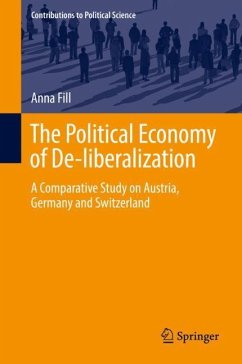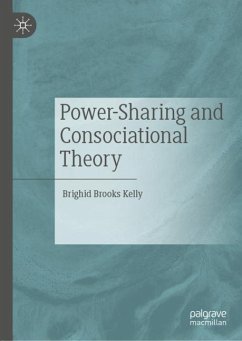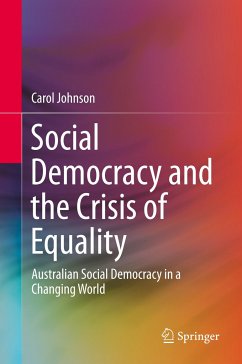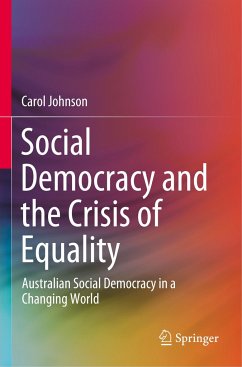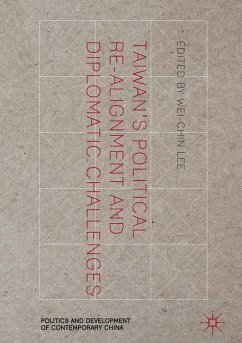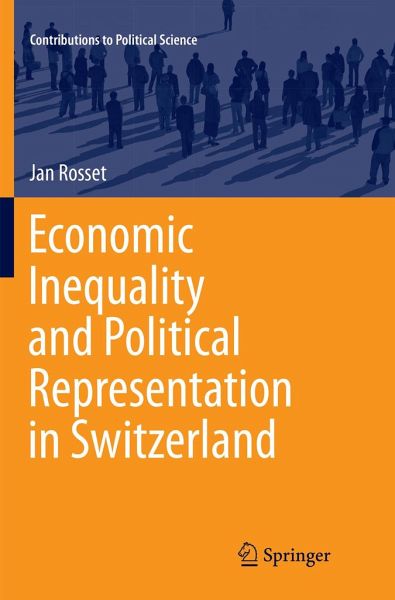
Economic Inequality and Political Representation in Switzerland
Versandkostenfrei!
Versandfertig in 6-10 Tagen
38,99 €
inkl. MwSt.
Weitere Ausgaben:

PAYBACK Punkte
19 °P sammeln!
This book analyzes the link between economic and political inequalities and investigates the mechanisms that lead to economically rooted inequalities in the political representation of citizens' policy preferences. Focusing on the case of Switzerland and evaluating data from the post-electoral survey, Selects 2007, the author demonstrates that the policy preferences of members of the Federal Assembly best reflect those of rich citizens. This pattern is explained by differential levels of political participation and knowledge across income groups, party finance, the fact that representatives te...
This book analyzes the link between economic and political inequalities and investigates the mechanisms that lead to economically rooted inequalities in the political representation of citizens' policy preferences. Focusing on the case of Switzerland and evaluating data from the post-electoral survey, Selects 2007, the author demonstrates that the policy preferences of members of the Federal Assembly best reflect those of rich citizens. This pattern is explained by differential levels of political participation and knowledge across income groups, party finance, the fact that representatives tend to come from higher economic strata, and the failure of the party-system structure to reflect the complexity of policy preferences among citizens.





